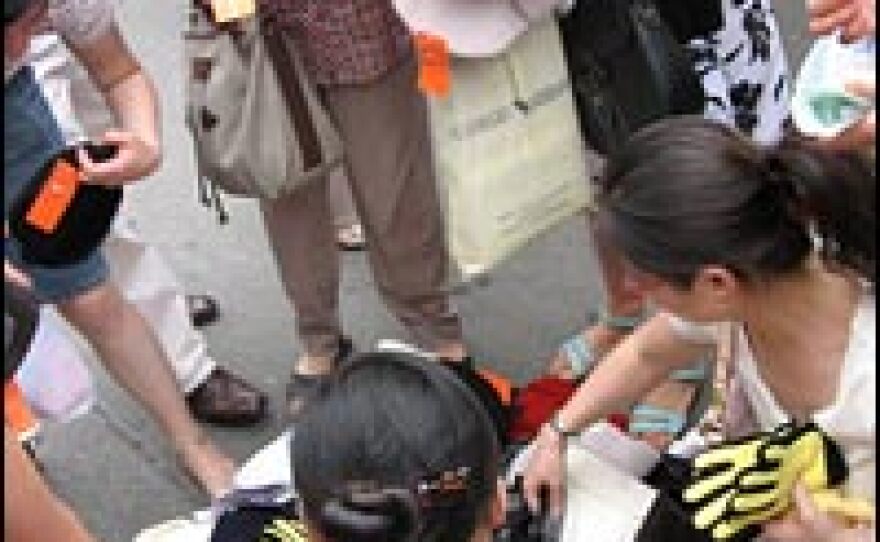

On just about any busy city street in China, nothing seems as real as a fake name-brand bargain. Foreigners and other shoppers quickly get used to hearing counterfeiters chant, "Gucci, Prada, Chanel."
Intellectual-property rights are the single largest irritant in Sino-U.S. ties. The Chinese government says it's cracking down, reportedly seizing 39 million fake products in the first half of 2006. But China's battle against copyright pirates has a long way to go.
In Shanghai, the local government claimed a victory when it recently shut a famous market, where 80 percent of goods sold were said to be fake. But for tourists like Jenny Jones from California, the market's closure represented just another shopping opportunity.
Asked if she feels bad about buying fake brands at hundreds or even thousands of dollars off their U.S. retail price, Jones says, "No, not at all. When I see the price difference, I don't really care."
Stallholder Huang Xiaoyu had been selling fake Cartier watches, among other things, for the past 10 years. She wasn't sure what she'd do, but thought she'd probably move her stall elsewhere.
"I don't feel guilty," she says. "The more demand there is, the more we sell. We're not forcing anyone to buy these things."
It seems there's an inexhaustible demand for fake just-about-everything. Local newspapers have reported on fake roller coasters, fake Canadian wine -- even the faking of an entire orchestra. (Second-rate performers posed as a famous orchestra at a concert in Shanghai.)
And, increasingly, China is becoming a production and export base for counterfeit goods, as homegrown crime networks build up their own international distribution channels. Last year, almost 70 percent of counterfeit goods seized were made in China, according to U.S. Customs figures.
"I personally call counterfeiting, piracy, the cancer of the century," says Jack Chang, a lawyer who heads the intellectual property committee of the American Chamber of Commerce in Shanghai. "We need to cut it as soon as possible."
Tackling piracy, Chang says, means educating -- or shaming -- the public into doing the right thing. Counterfeit drugs and auto parts can kill, he says. Even pirated luxury goods and DVDs are bad because the money goes "into the bad guys' pockets," he adds.
"When you buy counterfeit goods, you'll actually be viewed as a supporter of child labor and violent crimes. Do you still buy it?" Chang says.
Copyright pirates are always one step ahead of the government, he says.
"I personally call it firefighting," he says. The government "[puts] out the fire but cannot track the arsonist. Effective criminal enforcement is the key."
Other experts doubt whether China can -- or even wants to -- enforce its own piracy laws. After all, the industry of knockoffs generates income and employment for local governments.
Copyright 2022 NPR. To see more, visit https://www.npr.org. 9(MDAzMjM2NDYzMDEyMzc1Njk5NjAxNzY3OQ001))







